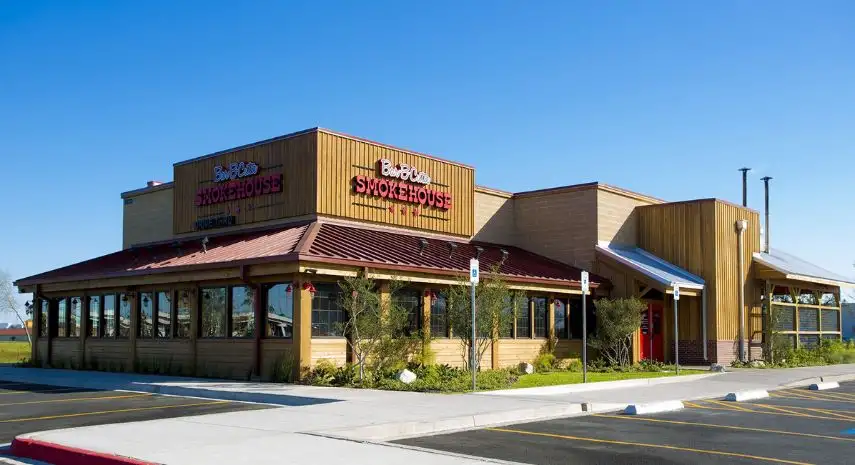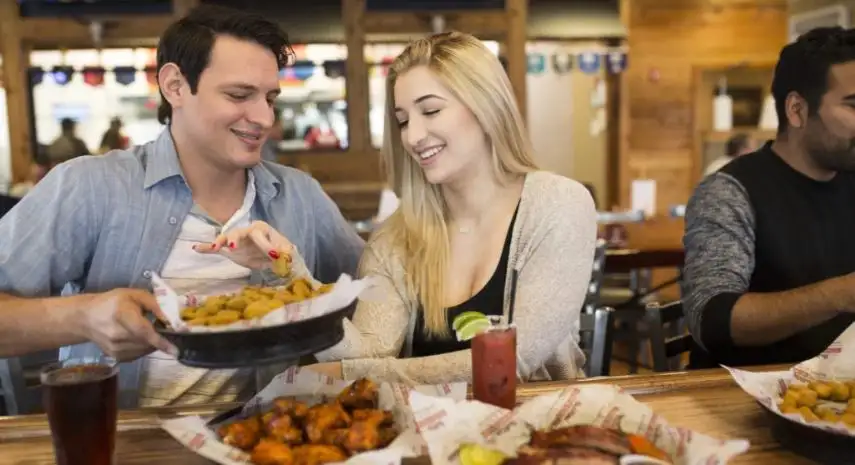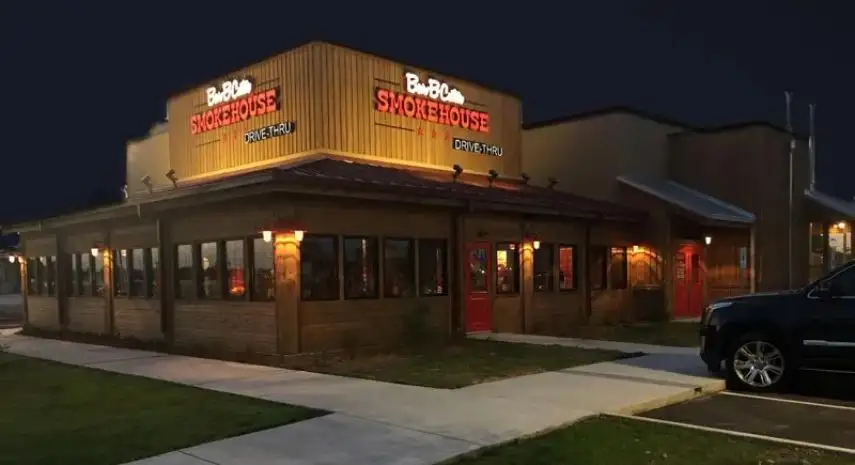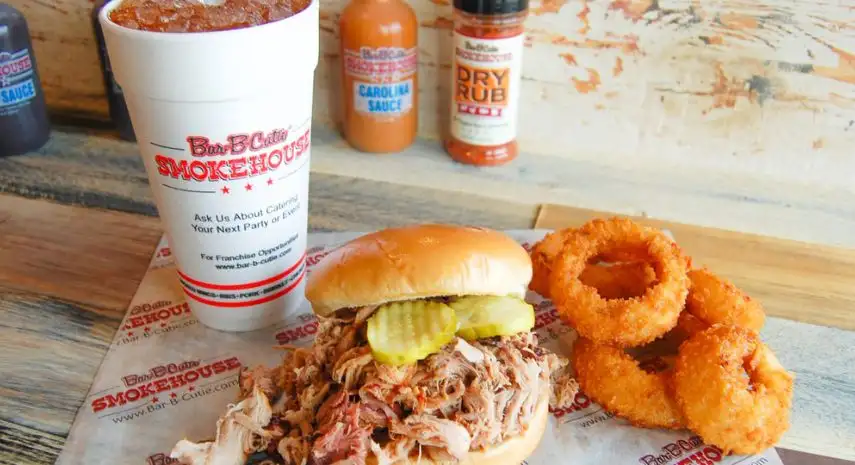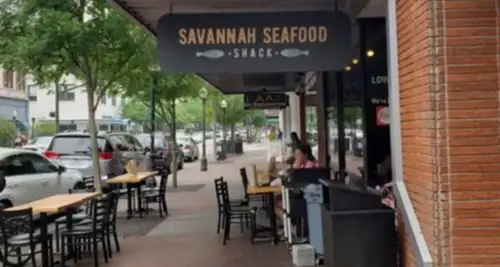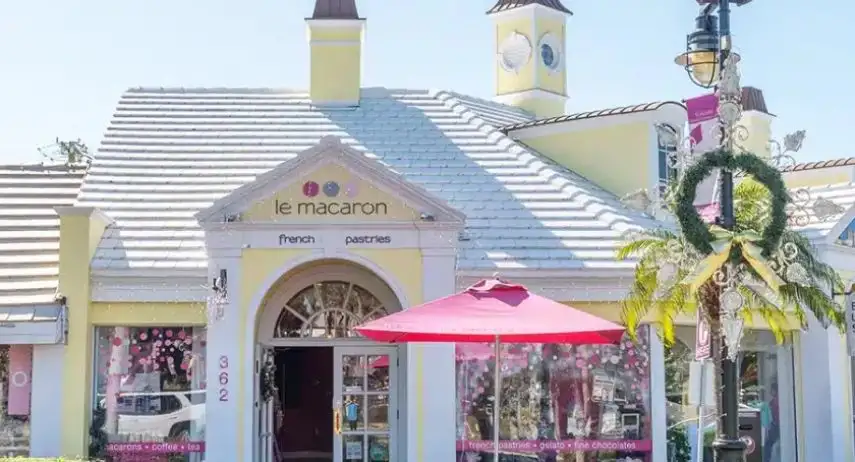Established
1950
Franchise Units
12
Minimum Investment
$63,649
Franchise Fee
$35,000
Total Investment Range
$2,080,491
Home Based
No
Description
Description
Bar-B-Cutie SmokeHouse stands as a distinguished name in the American barbecue landscape, renowned for its authentic, hickory-smoked meats and Southern comfort cuisine. Since its inception in 1950 in Nashville, Tennessee, the brand has evolved from a modest car-hop eatery to a thriving fast-casual restaurant and catering enterprise. With over 75 years of culinary excellence, Bar-B-Cutie offers a compelling franchise opportunity for entrepreneurs passionate about delivering quality barbecue in a community-centered environment.
Why Invest in This Franchise?
Investing in a Bar-B-Cutie SmokeHouse franchise means aligning with a brand that combines time-honored traditions with modern business acumen. Franchisees benefit from:
-
Proven Business Model: A track record of success with multiple revenue streams, including dine-in, take-out, catering, alcohol sales, and drive-thru services.
-
Comprehensive Support: Extensive training programs and ongoing operational assistance ensure franchisees are equipped for success.
-
Veteran-Friendly Incentives: Specialized programs and financial incentives for veterans entering the franchise system.
-
Community Engagement: A brand deeply rooted in community involvement, enhancing local brand loyalty and customer retention.
Background
Established Year:
Bar-B-Cutie was originally founded in 1950 in Nashville, Tennessee, as a small, family-owned drive-in restaurant. Its core focus was serving authentic, slow-cooked Southern barbecue that quickly earned a loyal local following.
Founders:
The brand was founded by Eddie and Mildred McFarland, who emphasized quality ingredients, traditional smoking methods, and excellent customer service. Today, the company remains privately owned and family-operated, carrying the same values across all locations.
Franchise Units & Growth:
The franchise model was launched in 2003, allowing Bar-B-Cutie to expand beyond its original location. As of now, there are approximately 12 franchise units across the United States, and the brand continues to seek growth in high-demand regions.
Brand Journey & Company History:
-
1950s–1980s: Operated as a local favorite drive-in, gaining reputation for its signature smoked meats.
-
1990s: Expanded menu and enhanced operational systems to prepare for larger-scale growth.
-
2003: Officially began franchising, opening doors for investors to replicate the brand’s success in new markets.
-
Present Day: Bar-B-Cutie is recognized as a fast-casual barbecue franchise, offering dine-in, take-out, catering, and drive-thru options, catering to modern consumer preferences.
Ownership & Management:
Bar-B-Cutie is family-owned and privately held, which allows it to maintain consistent quality, brand values, and operational standards across all units. The management team combines traditional barbecue expertise with modern franchise operations.
Market Presence in the USA:
Although modest in unit count compared to national chains, Bar-B-Cutie has strategically positioned itself in high-traffic areas with strong demand for authentic barbecue. Its regional reputation as a quality barbecue destination provides franchisees with a loyal customer base and brand recognition.
Industry Category:
The brand falls under Fast Casual Restaurants, Barbecue, Catering Services, and Quick Service Restaurants (QSR). It competes in the niche of authentic Southern barbecue while offering the convenience of modern fast-casual service.
Other Information:
-
Known for signature smoked meats, sauces, and Southern-inspired sides.
-
Offers community engagement programs, boosting local brand loyalty.
-
Franchise model includes multiple revenue streams, including catering, alcohol sales, and drive-thru, which diversify earnings for franchisees.
Support Training
Bar-B-Cutie provides a comprehensive support system designed to help franchisees launch successfully and operate efficiently, even if they are new to the restaurant business. The support spans pre-launch, operational, marketing, and ongoing assistance, ensuring franchisees have the guidance needed at every stage.
1. Pre-Launch Support
Before opening a new franchise location, Bar-B-Cutie offers extensive pre-launch assistance, including:
-
Site Selection & Evaluation: Franchise consultants help identify prime locations based on demographics, foot traffic, and market demand.
-
Lease Negotiation Guidance: Expert advice on negotiating favorable lease terms to reduce upfront costs.
-
Design & Construction Assistance: Support in store layout, interior design, kitchen setup, and equipment sourcing to align with brand standards.
-
Regulatory & Licensing Assistance: Guidance for local permits, health inspections, and compliance with federal, state, and municipal regulations.
2. Training Programs
Franchisees receive hands-on training to ensure operational efficiency and brand consistency:
-
Initial Training (42 days approx.): Covers food preparation, recipes, cooking techniques, customer service, and daily operations.
-
Management & Leadership Training: Equips franchise owners and managers with staff management, inventory control, and financial oversight skills.
-
Marketing & Sales Training: Teaches local marketing strategies, social media management, and promotional campaigns to drive traffic and boost sales.
-
Technology Training: Provides instruction on POS systems, digital ordering, and reporting tools for smooth operations.
3. Grand Opening Support
Bar-B-Cutie ensures a successful launch through:
-
On-site assistance during the grand opening week.
-
Guidance on opening day promotions, local press outreach, and community engagement.
-
Support from experienced franchise consultants to troubleshoot any operational issues in the critical early stages.
4. Ongoing Operational Support
The support does not end after opening:
-
Regular Check-Ins: Periodic visits from franchise operations specialists to maintain quality standards.
-
Business Consulting: Assistance with menu optimization, cost control, staffing solutions, and operational improvements.
-
Supply Chain Support: Franchisees benefit from centralized purchasing and approved suppliers to ensure consistency and cost efficiency.
-
Problem-Solving & Crisis Management: Access to experienced staff for guidance on challenges ranging from equipment issues to staffing or customer service concerns.
5. Marketing & Promotional Support
Bar-B-Cutie provides marketing and brand promotion resources to help franchisees attract customers:
-
National Marketing Campaigns: Brand-level promotions that drive awareness.
-
Local Marketing Assistance: Strategies tailored to the franchisee’s community, including flyers, social media campaigns, and events.
-
Grand Opening Campaigns: Tools, materials, and guidance to make the launch a local success.
-
Loyalty & Customer Retention Programs: Guidance on running promotions, rewards programs, and special events to increase repeat business.
Ideal Candidate
Bar-B-Cutie seeks motivated, community-oriented entrepreneurs who are passionate about delivering a high-quality barbecue experience while operating a profitable business. The ideal franchisee embodies a mix of business acumen, financial capability, and personal enthusiasm for the brand.
1. Passion for Food and Hospitality
-
A genuine love for authentic Southern barbecue and comfort food.
-
Commitment to delivering excellent customer service and creating a welcoming environment for diners.
-
Interest in maintaining quality and consistency in food preparation and presentation.
2. Business Experience & Management Skills
-
Prior experience in restaurant management, food service, retail, or small business operations is highly advantageous.
-
Strong understanding of financial management, inventory control, staffing, and customer relations.
-
Ability to lead and motivate a team, ensuring operational efficiency and staff satisfaction.
3. Financial Capability
-
Capacity to meet the minimum investment requirements ($663,000 – $2,080,000 total investment).
-
Sufficient working capital and net worth to sustain operations through the initial months until break-even (typically 18–24 months).
-
Willingness to invest in marketing, local promotions, and operational excellence to maximize revenue streams.
4. Entrepreneurial Drive & Commitment
-
Self-motivated and willing to dedicate the necessary time and energy to operate a successful franchise.
-
Ability to follow proven systems and brand guidelines while also applying local market insight.
-
Enthusiasm for community engagement, building brand loyalty, and hosting events or promotions that connect the restaurant with local customers.
5. Location Preferences
-
Ideal franchisees are those interested in high-traffic areas or regions with strong demand for barbecue and fast-casual dining.
-
Preference for markets where Bar-B-Cutie can stand out as a local favorite, leveraging community ties and reputation for quality.
6. Personal Traits
-
Strong work ethic and resilience in the face of challenges.
-
Excellent communication and interpersonal skills to manage staff, vendors, and customers.
-
Passion for creating a memorable dining experience and building a long-term business in the foodservice industry.
Summary:
The ideal Bar-B-Cutie franchisee is a driven, financially capable, and community-focused entrepreneur who values quality, customer service, and operational excellence. By combining personal passion for barbecue with a commitment to following the proven franchise model, franchisees can achieve long-term growth and profitability while maintaining the brand’s reputation for excellence.
Financial Detail
| Financial Component | Details / Amount |
|---|---|
| Total Investment Required | $663,649 – $2,080,491 (depending on location, store size, and setup requirements) |
| Franchise Fee | $35,000 |
| Royalty Fee | 5% of gross sales |
| Advertising / Marketing Fee | Up to 2% of gross sales |
| Cash Requirement | $200,000 – $460,000 |
| Net Worth Requirement | $750,000 – $2,500,000 |
| Franchise Units (USA) | Approximately 12 units |
| Infrastructure / Build-Out Cost | $400,000 – $1,200,000 (varies by location and size) |
| Working Capital | $50,000 – $150,000 |
| Break-Even Time | Typically 18–24 months |
| Expected ROI | Varies by location, average potential ROI is 20–25% annually |
| Revenue Streams | Dine-in, take-out, catering, drive-thru, alcohol sales |
| Ongoing Support Costs | Included in royalties; additional optional marketing investments possible |
| Other Fees / Costs | Local permits, insurance, utilities, POS systems (varies by location) |
Notes:
-
Total investment includes franchise fee, real estate or lease costs, build-out, equipment, initial inventory, and working capital.
-
Break-even time can vary depending on local market conditions, location traffic, and operational efficiency.
-
Multiple revenue streams allow franchisees to diversify income, increasing profitability.

